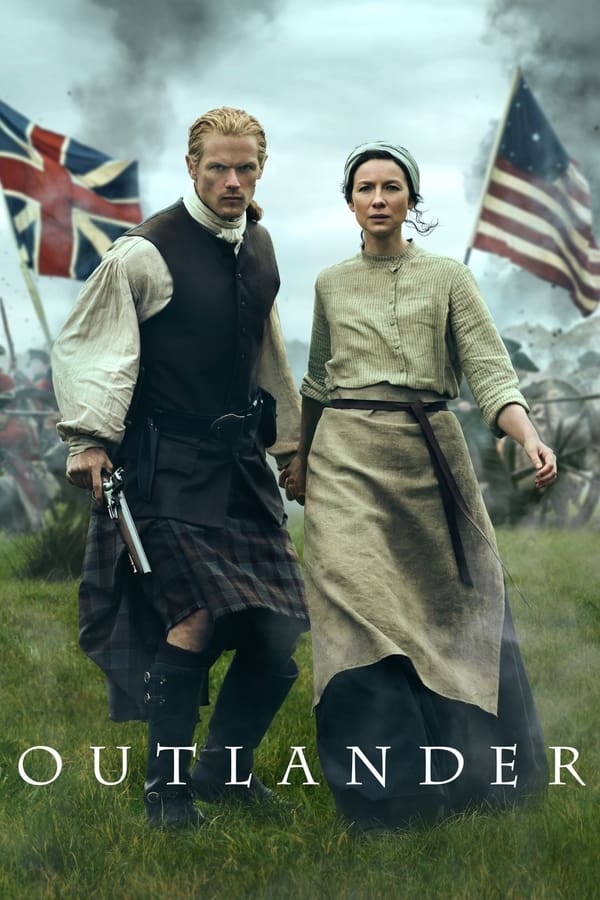Outlander follows Claire Randall, a World War II nurse who is mysteriously transported from 1940s Scotland to 18th-century Scotland after touching an ancient standing stone circle. As she navigates life in the past, Claire becomes entangled in the Jacobite rebellion, falls in love with Jamie Fraser, and struggles with the moral and emotional conflicts of knowing the future. The show explores time travel, historical events, and the consequences of altering the past, as Claire’s knowledge of historical outcomes—such as the Battle of Culloden—raises questions about fate and free will. The series delves deeply into themes of identity, as Claire is torn between her modern husband, Frank, and her new life with Jamie in the past. Across multiple timelines and locations, Outlander highlights the complex interplay between history, destiny, and personal choice, blending romance, adventure, and historical drama with mystical elements of time travel. The show continues to follow Claire and her descendants, revealing the far-reaching impacts of time manipulation on both personal and historical levels.

Outlander
Gravity Index: 8
Outlander presents a complex and emotionally charged narrative that intertwines historical events with the high-concept element of time travel. The show’s serious tone underscores the personal and historical consequences of Claire Fraser’s time travel, as the characters face moral and ethical dilemmas in altering the past. While the mechanics of time travel are mystical rather than scientific, the philosophical exploration of fate, free will, and the impact of historical knowledge adds significant depth to the narrative, making Outlander both a gripping drama and an engaging exploration of the consequences of time travel.
Tone: 8
Outlander maintains a serious and often dark tone, balancing romance, historical drama, and high-concept science fiction in its exploration of time travel. While moments of lighter interactions and romantic tension are present, the show frequently delves into the harsh realities of life in different historical periods, the impact of violence, and the personal consequences of changing time. The tone is generally somber, as the high-concept element of time travel leads to intense personal and moral dilemmas.
Consequence: 9
The consequences of time travel in Outlander are significant and deeply personal, as Claire Fraser’s journey from the 1940s to 18th-century Scotland affects not only her own life but also the lives of those she encounters. Changes in the past lead to large-scale historical ramifications, as Claire and her family grapple with the ethical dilemmas of intervening in major events like the Jacobite rebellion. These alterations are often irreversible, and the characters must live with the emotional, psychological, and historical impacts of their decisions, making the consequences profound.
Depth: 7
Outlander does not focus heavily on the scientific mechanics of time travel, offering a more mystical explanation through the standing stones. However, the show does engage with the philosophical implications of time travel, especially the moral responsibility of knowing historical events in advance and the consequences of attempting to change them. Themes of fate, destiny, and free will are central to the narrative, as characters question their ability to influence history or whether certain events are fixed. The show also explores how time travel affects identity and relationships across different eras.